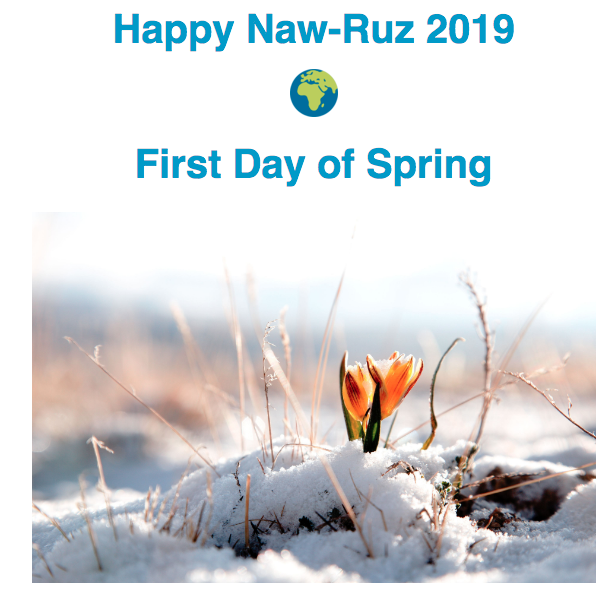
Haft-Sin or Haft-Chin?
With the first day of Spring, the thirteen day Festival called Sizdah Bedar begins. It is also known as Nature's Day and is celebrated by spending time outdoors and enjoying Nature with family and friends. In our ad this week in Daneshmand Magazine, we posted a touching story about how the famous Persian nuclear physicist, Dr. Mahmoud Hesabi, explains the meaning of Naw-Ruz and the Haft-Sin to Albert Einstein and other professors at his Naw-Ruz celebration. The Haft-Sin is a traditional way of commemorating the New Year, by decoratively placing seven items on a table that begin with the letter "seen" in the Persian alphabet. However, according to Dr. Hesabi, the Haft-Sin used to be called Haft-Chin, which actually means "picking" or"harvesting", and each symbolic item has a spiritual meaning associated with it.
These items of the Haft-Chin and their meanings are:
1. Sabzeh (sprouts), representing growth.
2. Mahi (goldfish), representing movement.
3. Ayneh (mirror), representing sincerity, to be oneself, not being two faced.
4. Sham (candle), representing birth and death. For each guest that is present at the celebration, a candle is lit. While we may approximately know when one is to be born, we do not know ones death. It's destiny.
5. Niloofar (Lotus flower), the Lotus flower comes out from the dirt of the pond, yet it blooms in outmost purity. This represents the purity of the transformation that takes place in the human spirit, from materialism to the higher self.
6. Moose ghee Irani (classical Persian music). It is more than just music, it uplifts the spirit and speaks from the heart. It is a kind of philosophy, a way of thinking, an expression of hope and desire.
7. A bowl of water with an orange floating inside of it, representing the Earth in Space.
Einstein was the most surprised about this last point, when Dr. Hesabi explained that this visualization was present from 10,000 years ago, meaning that the civilizations at the time already knew that the Earth was round.
Reference: https://welcometoiran.com/mahmoud-hesabi/
.jpg)
.jpg)


